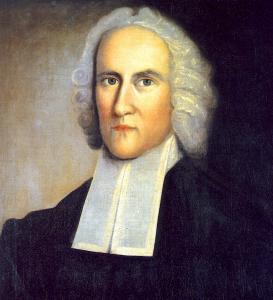The new 9Marks eJournal just arrived, and it’s on–take a deep breath here–church discipline. I know, right–why don’t they settle down and pick a single issue to focus on already? Good grief.
I’m just kidding. In actuality, the new issue looks typically helpful. Some of you will know that I have a particular affection for the writings of one Greg Gilbert, he of Capitol Hill Baptist Church. Greg has a nice review of a hot new book called Deep Church written by a PCA pastor named Jim Belcher that includes some very helpful comments on unity, gospel, and how the two relate in our day.
Here’s a nice chunk (read it all–Greg is a punchy but deep penman):
The real irony of Deep Church is that Belcher actually does a pretty good job of laying out the real, substantive, and ultimately fellowship-breaking issues that stand between emergents and traditional evangelicals, but his whole stated project of finding common ground on which those two camps can reunite falls completely apart, I think, in the first few pages of his book. Let me show you why I say that.
In the book’s introduction, Belcher recounts a meeting between Tony Jones, Doug Pagitt, and John Piper. The meeting ended badly, with Piper telling Pagitt, “You should never preach,” because Pagitt rejected what Belcher strangely calls “Piper’s view of atonement,” which I have to assume is penal substitutionary atonement. As Piper summed it up, because they rejected penal substitutionary atonement, Pagitt and Jones were “rejecting the gospel in toto.”
Now, this is not the place to rehearse the biblical case for penal substitutionary atonement. I and others have done that elsewhere. So let me just skip to the conclusion of that case and say that Piper is right: To reject the idea of Jesus dying in the place of sinners, taking their punishment on himself for their sins, is to reject the gospel in toto. And therefore it is to make any sort of union between yourself and traditional evangelicalism impossible. To reject penal substitution is to reject the gospel, and to reject the gospel is to put oneself outside traditional evangelicalism.
Gilbert goes on to conclude the point as follows:
Knowing what Belcher was trying to do with this book, I entirely expected him to try to show later in the book how emergent leaders don’t in fact reject penal substitutionary atonement. I expected him to quote a passage here or there in one of their writings which leaves open the possibility of penal substitution. That never happens. Quite to the contrary, Belcher concludes in his sixth chapter, titled “Deep Gospel,” that the emergent church (represented here by Brian McLaren) is indeed guilty of “gospel reductionism” (118). “Nowhere,” Belcher says, “does [McLaren] mention…the doctrines of atonement, justification, union with Christ, or our need to be forgiven” (118). True, Belcher makes that statement about a certain article in which McLaren is claiming to articulate the gospel, but his point is that he doesn’t find those doctrines anywhere in McLaren’s writings.
But then, if that’s the case, what’s up with all this hope for a reunion? How exactly do you find a “third way” between affirming the gospel and not affirming the gospel? Yes, of course, Belcher softens his hit on the emergents by saying that traditional evangelicals are guilty of “gospel reductionism,” too. They “make the opposite mistake” of “car[ing] only about their own selves” and ignoring the kingdom of God, he says. But even setting that infuriating straw man aside for a moment, wouldn’t you think that when Belcher finally realized—after a third reading!—that Brian McLaren in fact does not affirm the gospel of forgiveness of sins through the penal substitutionary death of Jesus, he would maybe temper some of the “reunion” talk?
Amen to that. It’s right to want Christians to unite around the gospel. Problems arise, however, when people who profess to be Christians won’t affirm the core truths of the gospel. Who on earth would think that it makes sense to pursue unity of this kind? And why would a pastor from the PCA, a denomination doing such great good in our day, argue along these lines?











